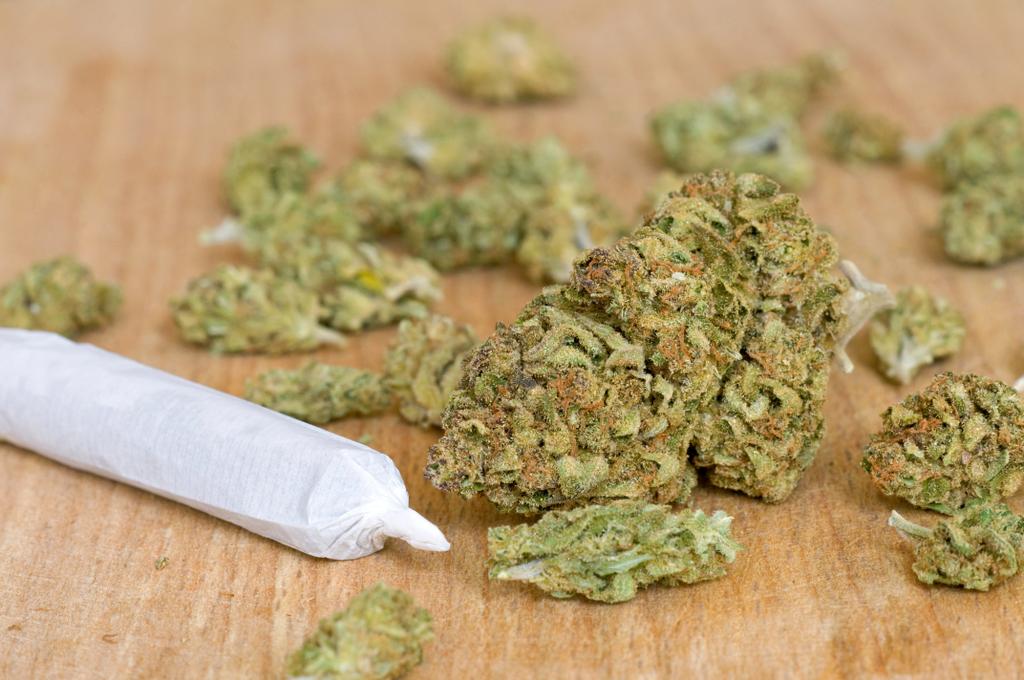With Republicans controlling the US House of Representatives and Speaker Mike Johnson adamantly opposed to marijuana law reform, it’s unlikely there will be much movement this year on any marijuana-related bill. However, things could change this November.

Despite Democrats currently in control of the Senate and presidency, and despite Senate Majority Leader Chuck Schumer in support of descheduling marijuana and passing a marijuana banking bill, there’s been no significant movement on any marijuana-related bill in this year or the last, other than one Senate committee advancing marijuana banking legislation. A big reason for this lack of movement is that Republicans control the House of Representatives. Speaker Mike Johnson opposes any attempt to loosen marijuana laws, as did Kevin McCarthy before him.
Things could change this November, with Democrats having a reasonable opportunity to take back control of the House, while retaining the Senate. When the Democrats controlled the House in 2022, they passed a variety of marijuana-related bills, including the MORE Act to fully deschedule marijuana and allow marijuana expungements. The measure failed to advance in the Senate, with Democrats and Republicans split 49 to 49 and with much of the year spent on a few specific proposals such as the Inflation Reduction Act.
Now, tides appear to be changing, with Senate Majority Leader Chuck Schumer sponsoring a bill to legalize marijuana nationwide, and with Vice President Kamala Harris saying just last month that “we need to legalize marijuana“, the first time a vice president has ever done so.
With that in mind, below are the three marijuana-related bills likely to be enacted into law if Democrats do take control of US Congress this November, while retaining the position of POTUS.
The SAFE/SAFER Banking Act
The SAFE Banking Act has 114 sponsors in the House, while the updated SAFER Banking Act has 36 sponsors in the Senate. The measure has strong bipartisan support, and Leader Schumer has vowed to pass the measure in the “weeks and months ahead“, but it’s unlikely to receive any serious consideration in the House. However, if Democrats take over congress this November, the SAFER Banking Act may be one of the first marijuana-related bills they pass into law, as they work on further reforms.
The legislation would allow banks, credit unions and other financial institutions to provide banking services to marijuana businesses that are legal under their state’s laws. This includes giving marijuana businesses access to debit card services, business loans, etc.
According to polling released recently, “by a greater than a 3-to-1 margin (63% support vs. 17% oppose) U.S. adults support Congress passing legislation that allows cannabis businesses to access banking services and financial products like checking accounts and business loans in states where cannabis is now legal”.
The MORE Act / CAOA
The Marijuana Opportunity Reinvestment and Expungement (MORE) Act in the House, and the soon-to-be-filed Cannabis Administration and Opportunity Act (CAOA) in the Senate, differ in several ways, but both would fully deschedule marijuana, completely removing it as a federal controlled substance. Both bills would also place a federal tax on state-level marijuana sales, and both would allow those with past marijuana convictions to have the charges expunged from their record.
The MORE Act has 87 sponsors in the House, all Democrat. In the Senate, the CAOA will be filed on 4/20 with the support of Leader Schumer.
The MORE Act passed the House in 2022, and will also surely pass again if Democrats take control of the House this November. Passing the Senate, given the 60-vote filibuster law, will be more of a challenge, but far from an impossibility.
Lawmakers will also need to reconcile the two bills, as they differ slightly; for example, both measures would begin with a 5% federal marijuana excise tax, but with the MORE Act it maxes out at 8% while the CAOA maxes out the tax at 12.5%. The CAOA would also take things a step further by establishing a regulatory framework for legal marijuana, including creating the Center for Cannabis Products within FDA, tasked with regulating “the production, labeling, distribution, sales and other manufacturing and retail elements of the cannabis industry”.
The Veterans Equal Access Act
The Veterans Equal Access Act would require the Department of Veterans Affairs (VA) to allow physicians to discuss medical marijuana with their patients, and recommend it if they deem it appropriate. The measure has 29 bipartisan sponsors in the House of Representatives.
Under current law, physicians at the VA are prohibited from discussing marijuana with their patients, and veterans who receive care from VA facilities cannot receive the forms required to participate in medical marijuana programs – regardless of whether or not they live in a medical marijuana state. H.R. 2431 would change this by providing federal protection to VA doctors who discuss and recommend medical cannabis.
According to polling released recently, 79% of veterans want federal law to be amended so that Veterans Affairs doctors are legally authorized to prescribe medical marijuana to their patients.
The Veterans Equal Access Act would be far less needed if the MORE Act or CAOA is passed into law, but it’s possible Democrats could, as with the SAFE/SAFER Banking Act, pass this measure into law as they would towards a full deschedule.

